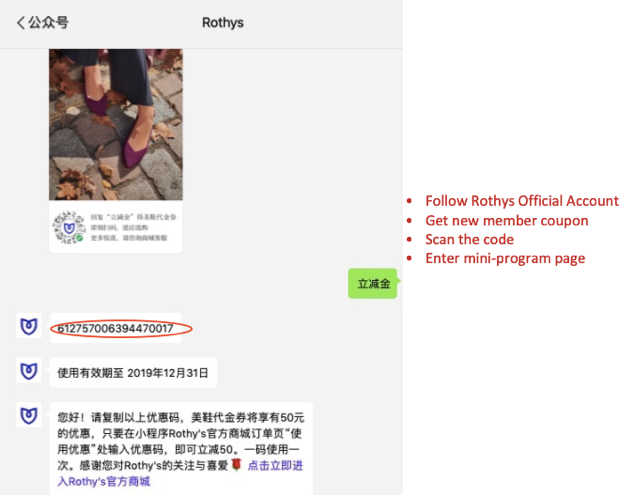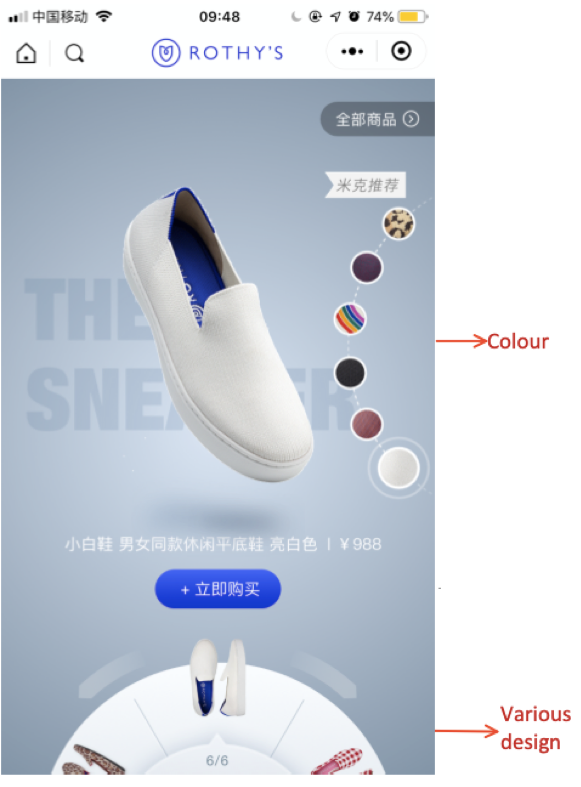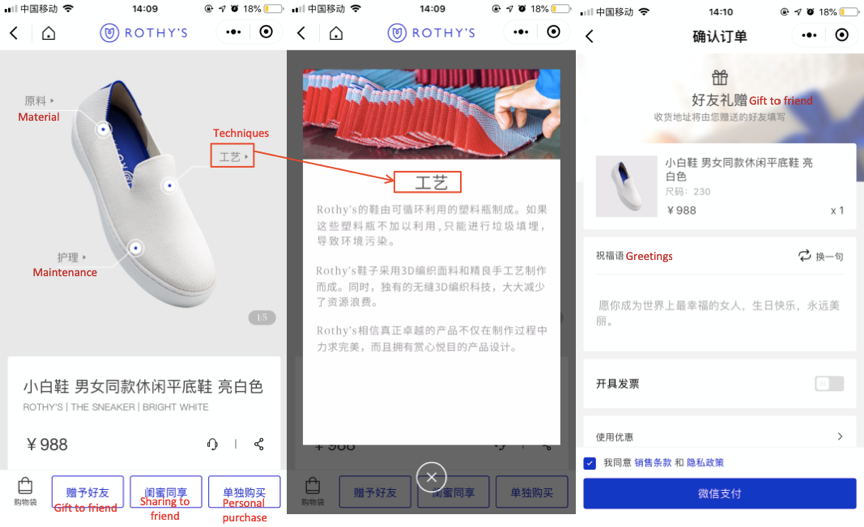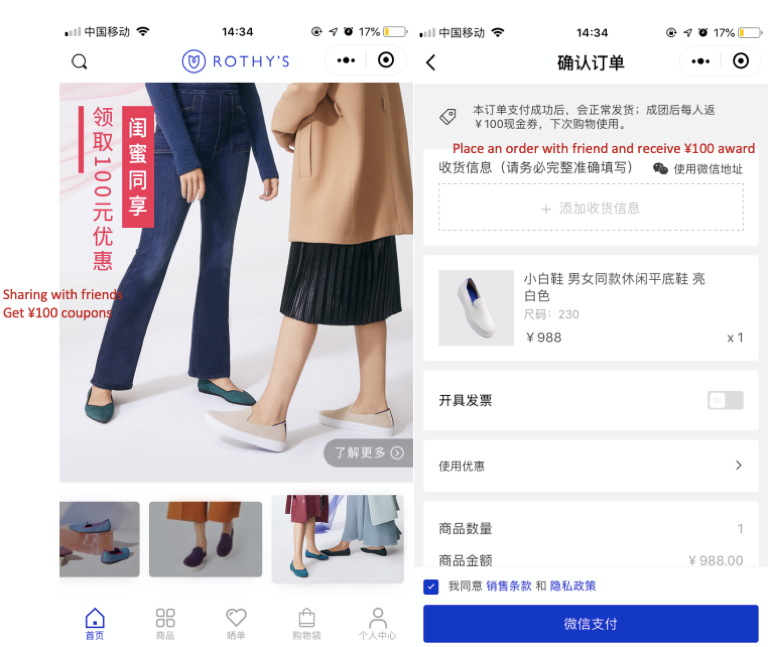Understanding Rothy’s Direct-to-Consumer WeChat Mini-Program
Rothy's, an American footwear brand that has tried their hand in China market by launching its WeChat Official Account, as well setting up its own WeChat Mini-Program store to get close to Chinese customers.
by Ker Zheng
This article was first published on Azoya's WeChat channel. Check out our new site to learn how to sell to China through WeChat.
Rothy’s is a new American footwear brand that has drawn attention for its environmentally friendly material and devotion to sustainability.
Founded in 2016, its direct-to-consumer (DTC) business model and in-house supply chain operations enabled it to open up a new niche within the US$370 billion global footwear market. In 2018, Rothy’s sold over one million pairs of shoes, raking in $140 million in revenues.
In February of this year, Rothy’s launched an innovative WeChat mini-program as part of its China market entry strategy, leveraging WeChat’s large user base and unique augmented reality technology to better engage customers.
We dig deeper and demonstrate how it all works.
Want to Sell to China Through WeChat? Check out our cross-border WeChat Mini-Program Solution |
How WeChat Enables Direct-to-Consumer Strategies
Rothy’s business model is heavily dependent on its direct-to-consumer strategy – that is, selling directly to customers and owning its own e-commerce channels and user data so that it can better adapt products to customer needs. Rothy’s can take new models to market within just six weeks, compared to 18 months for traditional footwear brands.
WeChat plays an important role in that it enables Rothy’s to set up its own official store and marketing channel. It can post whatever content and pictures that it wants to, and there is more space to build brand value and set its own prices than on a Tmall or JD.com store.
How does Rothy’s drive traffic to its mini-program? It provides a coupon for new users who follow its Official Account. The below picture shows an exchange with Rothy’s customer service chatbot, which provides a 50 RMB coupon for new users on its WeChat Mini-Program store.

Rothys WeChat Offical Account Homepage
The chatbot is a nice touch for those looking for more information or service. But what really makes the mini-program stand out is its showroom and product customization features.
Rothy’s WeChat Showroom
Rothy’s mini-program uses special augmented reality technology to let customers personalize their own shoes. There are six basic models, each with six different colors to pick and choose from.

What’s more is that once the user clicks into each product, there is a highly detailed diagram that pays close attention to the specific features of each shoe, including the material, how each shoe is made, and how to protect them for the long run.

The mini-program also leverages WeChat’s social commerce capabilities. That is, each customized shoe design can be shared with friends or shipped off as a gift to friends’ doorsteps. Customers can also send digital gift cards with each pair of shoes.
Those that share a design with friends and get them to make a purchase are also entitled to a 100 RMB discount. The WeChat Pay function makes it easy to make and track purchases.

Lastly, the mini-program also incorporates an offline element that takes its customer service to the next level.
Rothy’s appointment function enables customers to make an offline appointment at its flagship store in Shanghai. This is important for fashion items such as footwear because there are many different sizes and colors for each product, and oftentimes it’s difficult for customers to decide what to wear unless they try it on in person.
Key Takeaways
1. WeChat commerce is a new trend that enables brands to directly engage customers with articles, videos, and now direct-to-consumer sales channels.
2. Rothy’s mini-program uses its WeChat Official Account content platform to push content and notify customers of new updates. Its coupon system incentivizes new users to try out its mini-program.
3. The mini-program enables customers to personalize footwear, as well as share and gift items with friends. It also enables customers to set up offline appointments so that they can try on shoes in person.
See the rest of the article